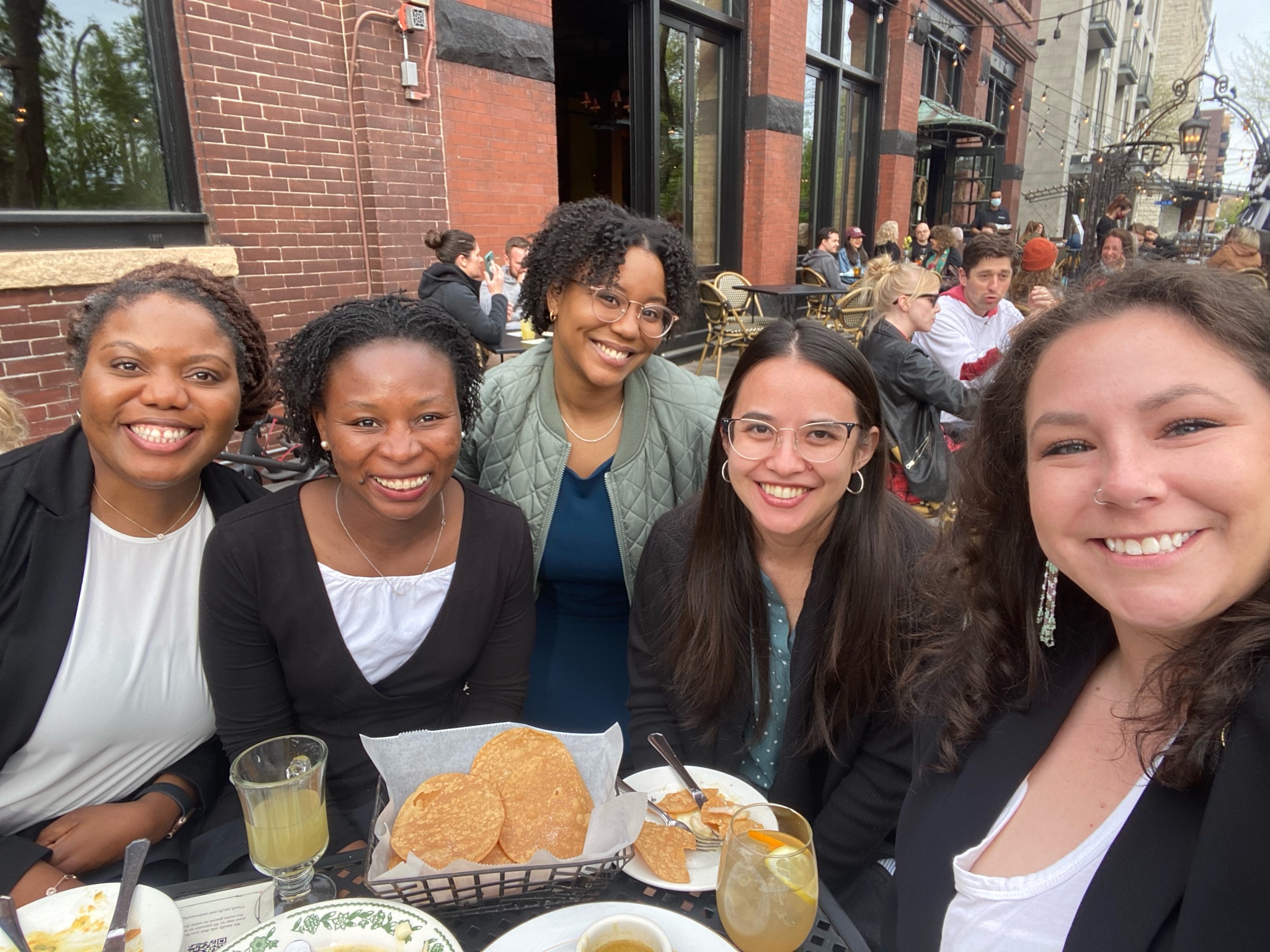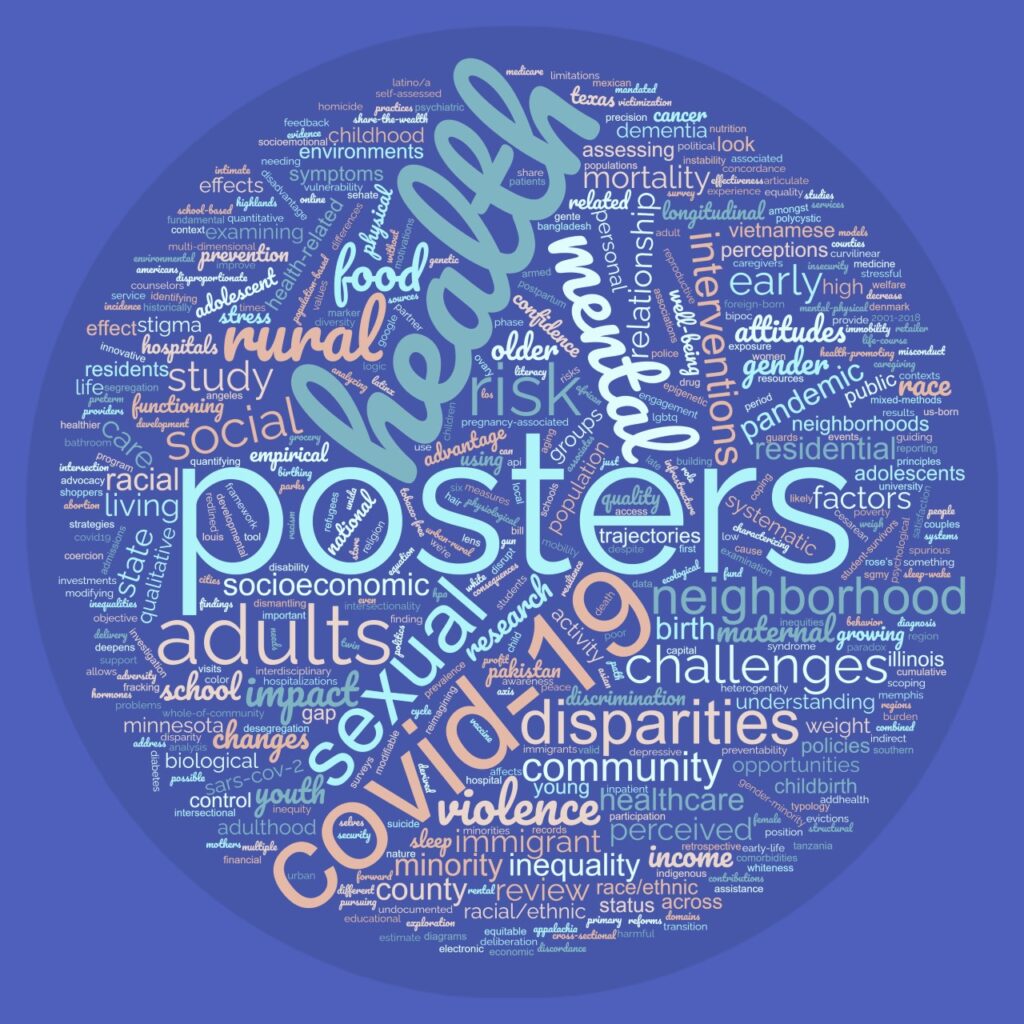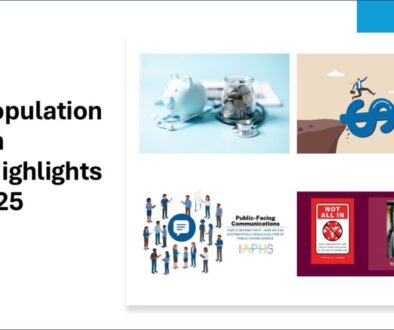IAPHS 2021 Conference: A Virtual Deep Dive into Health Equity and Population Health
Christine BachrachIAPHS’s 2021 conference, “Racism, Power, and Justice: Achieving Population Health Equity,” featured a deep dive into research on the pervasive and complex forces that undermine health for people of color, as well as presentations that examined other aspects of population health science and its application.
Held virtually October 19 – 21, 2021, the conference exemplified all that IAPHS seeks to be: a big tent organization dedicated to population health science that brings together people from all stages of their careers, different disciplines, multiple methodological approaches, and issues ranging from basic biosocial pathways to policy and practice interventions.
Perhaps more than in any previous IAPHS conference, the theme struck a deep chord among presenters. In the plenaries and in oral presentation and poster sessions alike, issues of racial justice and health equity predominated. Some examples of the range of ideas and perspectives on display:
- Merlin Chowkwanyun’s talk about the importance of bringing history into scholarship on racial inequities: the historical perspective denaturalizes racial inequality, shows how racism has been enacted by agents, and makes racism seem less inevitable. Channeling these ideas, many speakers throughout the conference integrated historical analysis into their presentations.
- Tarlise Townsend’s study of the effects of two leading opioid prescribing policies, one implemented by individual prescribers and the other at the clinic level, on prescription opioid dispensing for Black compared to white patients. She found more adverse effects on opioid receipt for Black patients when the policy operated at the individual prescriber level. This led to a lesson that universalist policies can produce inequitable results when they intersect with racism in the population.
- Vinu Ilakkuvan’s panel exploring how stakeholders across sectors work with community members in Washington, DC to achieve a more equitable school mental health system. Speakers talked about a project that has used a systems approach, scaling up over time to improve behavioral and mental health services and access.
- Elizabeth Clausing’s research on the possible role of epigenetic processes in the relationship between immigration-related stress and cardiometabolic health in Latinx immigrant mothers and children. She found that stress was associated with DNA methylation of two candidate genes (SLC6A4 and FKBP5) as well as BMI and waist circumference.
- Three sessions featuring scholars from pop health training programs. Trainees in the RWJF Health Policy Research Scholars program discussed the pathways by which racism, discrimination, and stigma cause medical distrust, and they hosted a separate session, “There’s no ‘I’ in structural: Going beyond the individual in racism research.” Scholars from Harvard’s JPB Environmental Health Fellows presented a session on Environmental Racism and Health.

Of course, the conference also included excellent offerings on other population health topics: health effects of gentrification, family adversity and noncommunicable disease risks, and presentations on COVID-19 and policies put in place to mitigate its spread are just a few examples. IAPHS partners The Nerdy Girls from Dear Pandemic gave an outstanding lunchtime session on science communication. Another session explored the use of evidence from population health science in making investments in population health, going beyond RCTs to consider what kinds of evidence actually drive investment decisions. (Stay tuned for future blog posts on session highlights!)
Posters!! There were 70 presentations in the Poster Hall, covering just as broad a range as the oral presentations: The word cloud of poster titles below sums it up. Poster award winners, who will be highlighted in a separate blog post, included Gabriela Bustamante (University of Minnesota), Krista Neuman (UC Berkeley), Tim Bruckner (UC Irvine) and Alexandria Reimold and Sarah Haight (both University of North Carolina).
One challenge for attendees at the IAPHS conference, and for this reviewer, is that the many enticing sessions overlapped within time slots. You simply can’t take in all that the conference has to offer in one sitting. The good news is that the conference platform will stay open for 30 days post-conference. There’s still time to circle back to the virtual platform and hear the sessions you missed!
Many people made the 2021 IAPHS conference a success: conference chairs Hedy Lee and Maggie Hicken, IAPHS president Kathie Harris, IAPHS Executive Director Sue Bevan, and all the speakers, poster presenters, and participants. We also thank conference sponsors and exhibitors (the Population Center, Life Course Center and IPUMS at the University of Minnesota and the National Alliance of Hispanic Health).
Most importantly, mark your calendars for next year’s in-person conference, Sept 20-23, 2022, in Minneapolis. Conference Chairs Sean Valles and Kat Theall will continue the emphasis on health equity with their theme, “Interdisciplinary Approaches for Advancing Population Health Equity.”






All comments will be reviewed and posted if substantive and of general interest to IAPHS readers.